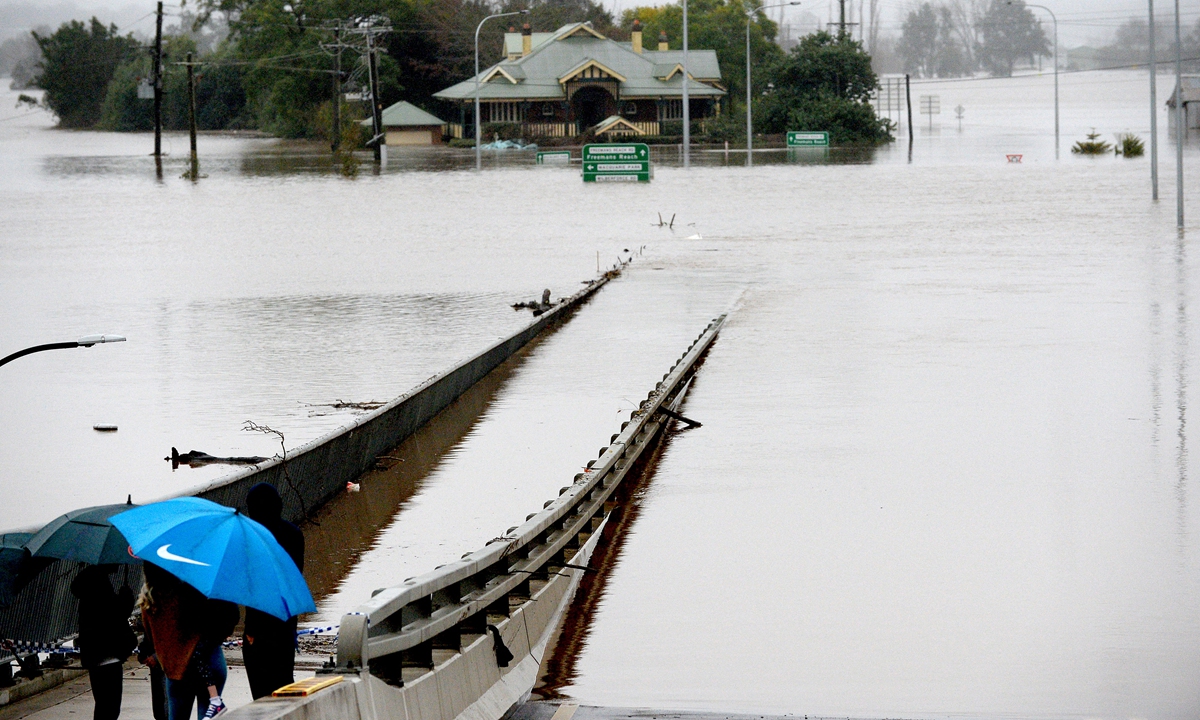Australia faces ‘sobering’ climate challenge
Report lays bare urgent need for action to prevent extreme weather events

People look out toward flooded houses next to an old Windsor Bridge along the overflowing Hawkesbury River in the northwestern Sydney suburb of Windsor on July 6, 2022. Photo: AFP
Rising temperatures are fueling widespread environmental degradation across Australia and supercharging natural disasters, according to a report released Wednesday in the wake of flash floods on the country's east coast.The State of the Climate report found global warming was also slowly melting Australia's fragile alpine regions while contributing to ocean acidification and rising sea levels.
Climate researcher Ian Lowe said the report was a "frightening" wake-up call for Australia, which relies heavily on coal and gas exports for economic growth.
"The scale of changes demonstrates that cleaning up our energy use is an urgent priority," Lowe said. "We also need to reduce our exports of coal and gas."
The report, a joint effort between the government's weather bureau and national science agency, found Australia's climate had warmed by an average of 1.47 C since records began in 1910.
Environment Minister Tanya Plibersek said it was "sobering" reading.
"For our environment, for our communities, this report reinforces the urgent need for climate action," she said.
Australia has in recent years experienced a series of extreme weather events linked to rising global temperatures.
Flash floods swept through parts of inland New South Wales earlier in November, tearing entire homes from their foundations in some country towns.
Tens of thousands of Sydney residents were ordered to evacuate in July when floods swamped the city's fringe.
An east coast flooding disaster in March - caused by heavy storms in Queensland and New South Wales - claimed more than 20 lives.
Catastrophic bush fires swept through huge chunks of New South Wales in the "Black Summer" of 2019 and 2020, while the Great Barrier Reef has suffered four separate mass coral bleaching events since 2016.
"These changes are happening at an increased pace," the State of the Climate report found.
"The past decade has seen record-breaking extremes leading to natural disasters that are exacerbated by anthropogenic [human-caused] climate change."
Prime Minister Anthony Albanese last week unveiled a bid to host the 2026 COP summit, seeking to repair Australia's international reputation as a climate change laggard.
AFP



